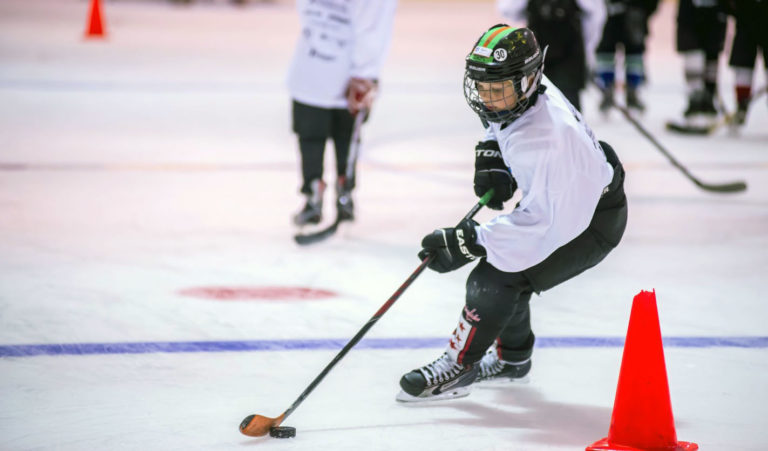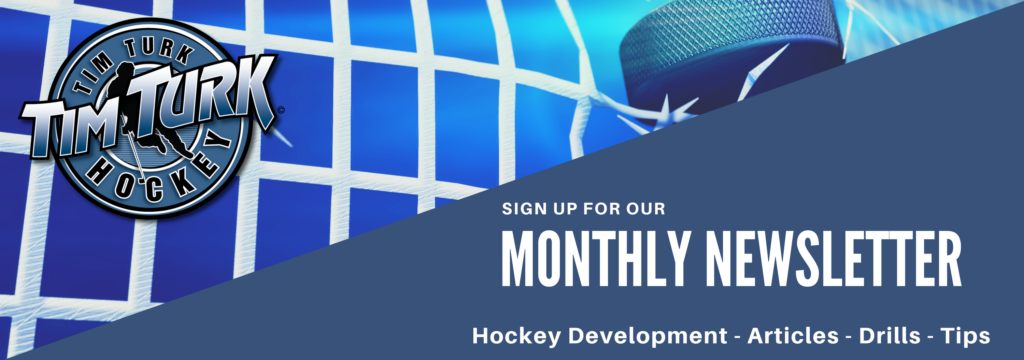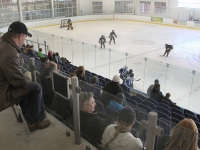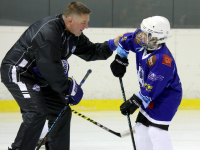For every minor hockey player, tryouts are an important and stressful period. Coaches can only select a handful of players to be on their teams, so players are expected to perform at their very best during tryouts. And, unfortunately, they’re also expected to figure out exactly what skills and traits each coach is looking for.
We all know that coaches seek out players who perform well on the ice. They want goalies who act as brick walls, blocking every shot that comes at them, forwards who apply pressure, keep control of the puck, know when they have opportunities to shoot and pass, and so on. However, there are plenty of other on-ice and off-ice skills that coaches desire in their future minor hockey team members. On-ice skills are ones that relate directly to the game of hockey, and off-ice skills are more about demeanor and attitude.
The problem is that most kids trying out for minor hockey teams aren’t aware of what characteristics to work on in the days leading up to tryouts. So, here’s the inside scoop on what minor hockey coaches look for in a player during their tryouts:
On-Ice Skills
Dexterity
Dexterity is a crucial trait for any position in hockey. Dexterity is the amount of skill a player has in performing tasks with their hands, which is obviously important in hockey. Whether you’re passing, shooting, or just handling the puck, or you’re a goalie using your hands to block shots, having excellent dexterity is an asset for any hockey player.
Hockey Sense
“Hockey sense” essentially means how quickly you can assess a situation in a hockey game and how much of a positive impact your response to that situation has on the game. Being able to anticipate situations early is also an important part of hockey sense. Practically every NHL player has a strong hockey sense, so when coaches see it in a player, they’ll certainly want them on their team.
Intensity
This doesn’t mean skating hard and fast everywhere all the time. If you do that, you’ll burn out thirty seconds into every shift. However, when the situation calls for it, a player who can turn on the burners and demonstrate speed and strength will surely be a stand-out. Having intensity will allow you to get to the puck faster, get in line to block more shots and intercept more passes, and can ultimately mean the difference between a win and a loss.
Making Hard Passes
This one is intuitive: the harder the pass, the less time the puck is travelling on the ice free of any player’s stick, and therefore the smaller the chance of a pass being intercepted. Coaches will notice when a player makes hard passes, and the best time to demonstrate it is during the tryout scrimmages.
Positional Play
Another important skill that can be demonstrated during the tryout scrimmages is positional play. Coaches look for players who stick to covering the area that they need to, based on their assigned position. That shows them that player has great game knowledge and awareness, and that they will be dependable during a real game when they are given a position to play.
Off-Ice Skills
Leadership
Most minor hockey players already know that leadership is something all coaches look for. However, there is a difference between making good calls when they’re needed and bossing everyone around all the time. Excellent leadership in hockey is about encouraging your teammates and not being afraid to make decisions both on the ice and off the ice.
Humility
Coaches want players who show humility. Humility is the attitude of not valuing your own importance too highly. In hockey, a player who has humility will value the contributions of their teammates and be more willing to trust them. They are more likely to pass the puck and play positionally because they know they can rely on their teammates to cover the ground they need to.
Positive Attitude
This one is a biggie for most coaches. They don’t want a player who, when their team loses three games in a row, gets upset and starts playing worse because of it. So, any player who can make a mistake or handle a loss without it affecting their play in the future has a huge advantage over the rest of the field.
Focus
A hockey player with excellent focus is a big plus for any coach. Not only focus during a game, but also when the coach is speaking. When a player displays outstanding focus, they know that when they give instruction or advice, it was certainly heard. Coaches also know that focused players have a higher chance of performing well, because they will be able to consistently keep track of the puck and the other players on the ice.
Work Ethic
This trait speaks for itself as to why coaches desire it. If a hockey player has great work ethic, they will be able to do what it takes to better themselves. They will work harder, smarter, and longer than many of their competitors to become the best in the sport. Most often, a player with excellent work ethic will eventually outshine the other players at their level.
Being Coachable
This is the characteristic of being able to easily accept and understand any advice or criticism. As you can see, being coachable goes well together with work ethic. A “coachable” player will listen attentively to their coach’s advice, and always keep it in mind as they work to better themselves. They aren’t afraid of changing their technique or mentality as they trust the process will ultimately make them a better hockey player.
Personal Enjoyment
Coaches love when they see players enjoying themselves at tryouts. This one may not seem too important at first but think about it: hockey tryouts are stressful. When a coach sees a happy, eager, enthusiastic player it shows them that player handles stress well. That way, when that player faces a stressful situation in a game, they will be more likely to keep calm and make the correct play.






